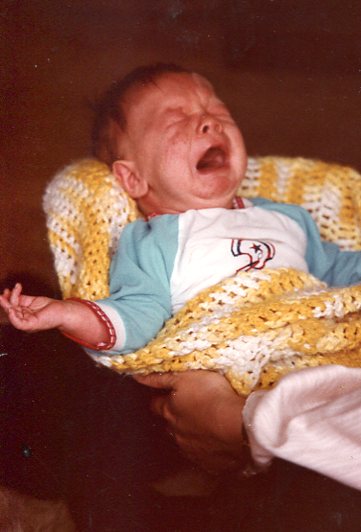In the first few weeks after he was born, Nick just didn’t seem to completely wake up. He was never fully alert. He wasn’t comforted by anything; food, warmth, human touch, nothing seemed to stop him from crying. It wasn’t a loud cry. Just a constant one. In frustration, after what seemed like hours of rocking and singing to him, I would put him in his crib, away from me. Then all of a sudden it would be quiet, deathly quiet, and I’d wonder if something bad had happened to my baby. I would run to him, only to discover him staring at some point on the ceiling. It was impossible to break this gaze and get his attention. We would later learn that this was seizure activity. At the time, we didn’t know. With this constant repetitive cycle that had developed, I felt as though I wasn’t able to learn who my child was. He also was not gaining weight or growing. In October, at the second month checkup, the pediatrician called it failure to thrive. Nick hadn’t gained any weight for the previous four weeks. I felt so guilty.
Something had to be done. The solution was to start formula right away and to stop breast feeding. I was so discouraged. Ryan had nursed so successfully; he knew just what to do right from the start. Nicholas had struggled and cried, every mealtime became a battle and again I felt as though we had found another area where the favorable comparison was one-sided. The doctor assured me that there was not anything wrong with my milk or with Nick. But I knew something was wrong, very very wrong.
It was over a year before we had any concrete answers from medical professionals. I felt a lot of guilt and helplessness over that first year. Once we had a diagnosis and a plan of action it was much easier for me.
I am grateful that today, the diagnosis usually comes quicker for a child with problems. There are some families who end up waiting like we did, but that is not typical anymore.
Please share this blog if it resonates with you or you know someone who might benefit from it.


